Featured articles
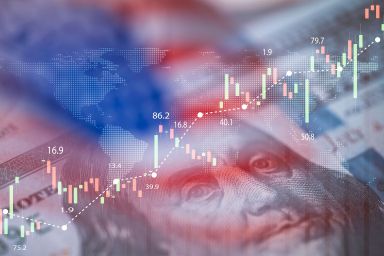
Why Michael Burry just sold all his tech stocks
Michael Burry has just exited a nearly $100 million position on Nvidia that he opened earlier this year.
14:42, 9 October 2025

Gold forecast: Third-party price targets
Gold (XAU/USD) is currently trading at $3,982.94 (as of 6:12pm UTC, 7 October 2025), after briefly crossing $4,000 per ounce for the first time during the session.
14:43, 9 October 2025

How does Elon Musk impact cryptocurrency prices?
In cryptocurrency markets, few individuals command as much attention as Elon Musk. The CEO of Tesla and SpaceX’s tweets, Tesla and Dogecoin announcements, and public statements can trigger periods of heightened volatility, with shifts in buying and selling pressure across digital assets.
13:29, 30 September 2025

Leading nanotechnology stocks in 2025
Nanotechnology sits at the intersection of science and industry, influencing everything from microchips and clean energy to precision healthcare solutions.
14:33, 3 December 2025

The $12 billion Nikola IPO and the fall of the so-called ‘Tesla of Trucking’
Nikola Corporation’s market debut in 2020 marked one of the most talked-about moments in the electric vehicle space. The company entered public markets through a high-profile SPAC merger, quickly capturing investor attention and industry headlines. But in less than five years, the story shifted dramatically.
12:54, 3 December 2025

How to use stop-loss orders when trading CFDs
When trading contracts for difference (CFDs), managing risk is just as important as identifying opportunities. One way to do this is through stop-loss orders — tools designed to close positions automatically if the market moves beyond a chosen level.
09:03, 3 December 2025

Top 20 global oil stocks by market capitalisation in 2025
Oil remains a cornerstone of the global energy system, shaping economies, trade flows and industrial growth. Even as renewable alternatives expand and policy targets evolve, major producers continue to hold a central place in global supply chains and investment portfolios.
09:58, 2 December 2025
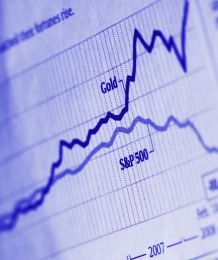
S&P 500-to-gold ratio: what it means and where it might go
The S&P 500-to-gold ratio provides a clear way to compare the performance of US equities with gold. By tracking how many ounces of gold are required to equal the value of the S&P 500 index, the ratio helps illustrate shifts in investor sentiment and the balance between risk and caution.
08:53, 2 December 2025
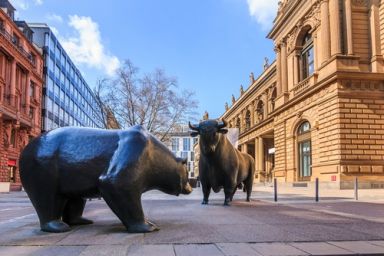
Market Mondays: December starts with anticipation as Fed expectations reign
Markets enter December with anticipation as the Federal Reserve meeting will be a key risk event, with changing expectations driving market volatility
14:14, 1 December 2025
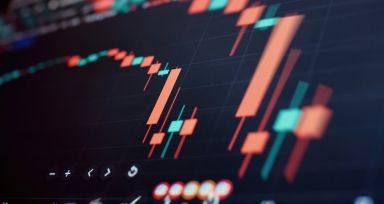
Most volatile Nasdaq Stock Market-listed stocks: Chinese and SaaS shares lead the volatility index
The Nasdaq Stock Market – home to many of the world’s major technology firms – often mirrors shifts in overall market risk appetite. During periods of changing monetary policy, advances in AI development and evolving corporate earnings expectations, price movements across its key constituents tend to become more pronounced.
15:03, 27 November 2025

Five things traders learned this US earnings season
S&P 500 earnings beat expectations, valuations improved, and the Magnificent Seven led the way.
14:08, 27 November 2025

Silver forecast: XAG/USD reaches new high, but positioning becomes overstretched
Buying appetite in silver has increased significantly this past week as several factors drive the momentum higher
09:39, 3 December 2025

Top 20 global oil stocks by market capitalisation in 2025
Oil remains a cornerstone of the global energy system, shaping economies, trade flows and industrial growth. Even as renewable alternatives expand and policy targets evolve, major producers continue to hold a central place in global supply chains and investment portfolios.
09:58, 2 December 2025

S&P 500-to-gold ratio: what it means and where it might go
The S&P 500-to-gold ratio provides a clear way to compare the performance of US equities with gold. By tracking how many ounces of gold are required to equal the value of the S&P 500 index, the ratio helps illustrate shifts in investor sentiment and the balance between risk and caution.
08:53, 2 December 2025

Market Mondays: December starts with anticipation as Fed expectations reign
Markets enter December with anticipation as the Federal Reserve meeting will be a key risk event, with changing expectations driving market volatility
14:14, 1 December 2025
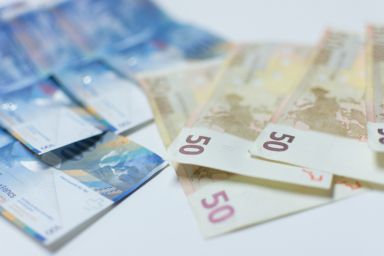
EUR/PLN forecast 2025: Third-party price targets
The euro–Polish zloty (EUR/PLN) pair draws on a broad mix of economic data, policy expectations and evolving market conditions, making it widely followed across the market.
15:09, 2 December 2025

Market Mondays: December starts with anticipation as Fed expectations reign
Markets enter December with anticipation as the Federal Reserve meeting will be a key risk event, with changing expectations driving market volatility
14:14, 1 December 2025
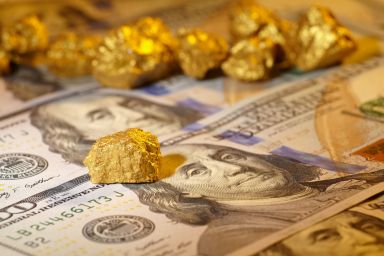
Gold vs US dollar seasonality trends: what could be the best and worst months for traders?
Gold and the US dollar often move through familiar seasonal patterns shaped by macroeconomic cycles, fiscal factors and investor behaviour. These rhythms have tended to repeat over time, offering insight into how markets respond to broader global conditions.
09:07, 28 November 2025

Markets in the Fog: Why Rate Uncertainty Still Rules the Narrative
Market volatility remains high as investors look to get further clues on what the Federal Reserve could do at the December meeting
11:29, 24 November 2025

Top crypto traders to follow by social media popularity in 2025
Influencers, analysts and developers use digital platforms to exchange ideas, interpret market trends and discuss the development of digital assets. As their audiences grow, these voices increasingly shape how information spreads and how trading discussions evolve across communities.
15:11, 1 December 2025

Choosing a digital wallet: the top five crypto wallets for 2025 and beyond
Before choosing a crypto wallet, it helps to understand what they are and why they matter. Digital wallets aren’t just places to store cryptocurrency – they’re essential for keeping private keys safe and managing access to digital assets.
11:10, 28 November 2025

Who owns the most Bitcoin Cash in 2025: BCH holders
Bitcoin cash (BCH) was created to make everyday crypto transactions faster and more affordable, while keeping the principles of decentralisation at its core. Over the years, it has developed its own network, community and market position, distinct from bitcoin.
10:33, 28 November 2025

Who owns the most Polygon (MATIC) crypto?
Polygon has undergone several changes since its launch, expanding from a single scaling project into a broader network that connects multiple blockchains. Its native token, POL, now sits at the centre of this ecosystem, supporting everything from validator rewards to governance participation.
14:23, 24 November 2025
